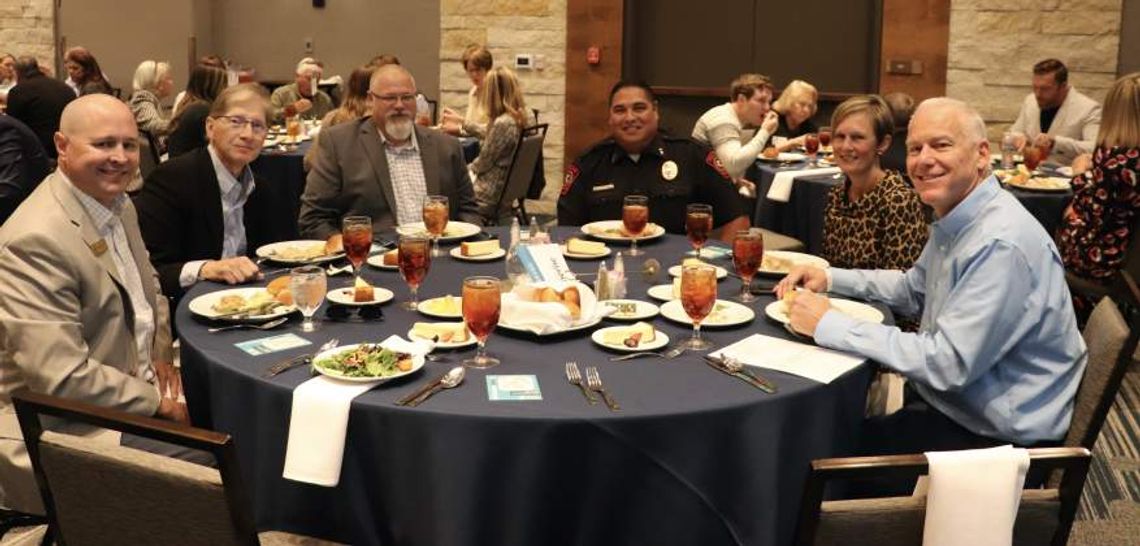BOERNE – Water issues, roadway challenges, infrastructure needs, growth and development all featured high on the list as local officials recently gathered to hear about the state of the city and its future.
VIPs packing The Bevy Hotel Boerne to recognize municipal accomplishments and hear about longterm goals ranged from Mayor Tim Handren to Boerne Independent School District trustees.
One optimistic note sounded by Handren during his address is the city’s water supply should be good another 15 years.
“When you become an elected official, the expectation is that you know everything suddenly about everything,” Handren told the audience. “And it takes a little bit of time to learn what it means to be an elected official … It takes a good year to kind of understand all the nuance of what it means to be an elected official.”
Continuing his remarks, Handren outlined the work of several key groups that have worked on projects during the year, including the Kendall County Water Committee, which was created by resolution in 2020 to review all future water sources for the county.
“I’m going to put a little check mark next on water, and I’ll tell you why,” Handren said, motioning to Patrick Cohoon, who chaired the water committee.
“They’ve been working for almost three years now on what is the future of water for our community,” Handren added.
The mayor outlined the work already being implemented by the group, including water-conservation measures such as more-stringent drought restrictions and the water conservation incentives being considered by city officials.
As the water committee met during the year, members at one point heard from Karen Guz, the San Antonio Water System conservation director. She covered ways to promote conservation in Boerne and Kendall County in preparation for future dry months.
Guz, who has been in her role at SAWS for 16 years, was asked to outline conservation suggestions for the city and county that are feasible rather than aspirational.
Some of the committee’s discussions over the months invited controversy, with critics noting members of SAWS, the Guadalupe-Blanco River Authority and other regional water suppliers belonged to the local group. A massive pipeline was considered for relief to water woes down the road, but the future of alternate supplies in Kendall County remains unclear.
It was also noted by representatives from SAWS and the Edwards Aquifer Authority during committee meetings that legislative efforts would be made again to allow aquifer water to be sold outside of its legislatively mandated boundaries.
The state law in 1993 that created the Edwards Aquifer Authority, which oversees the management and protection of the aquifer, also limited the sale of Edwards water outside boundaries that encompasses several counties wholly and partially, including Atascosa, Bexar, Caldwell, Comal, Guadalupe, Hays and Uvalde.
“Those entities are building thousands of houses,” Handren said, making note of the controversial WCID No. 3, also known as the Corley Farms development. “That’s not the result of City Council. Those were approved a long time ago, so some of that development will continue to happen, but the good news is our water supply system looks like it’s pretty good for proceeding 15 years easily.”
In addition, Handren praised the Kendall County, Boerne and Fair Oaks Transportation Committee, which recently wrapped up its work.
After three years of discussions and meetings, the committee has released a nearly 200-page comprehensive report on transportation issues for review by planners and community leaders.
Handren reminded the audience road construction isn’t cheap; a mile costs about $2.5 million. He noted the group’s report identified the 10-year master plan the city has worked to regularly update, keeping it from going stale.






Comment
Comments